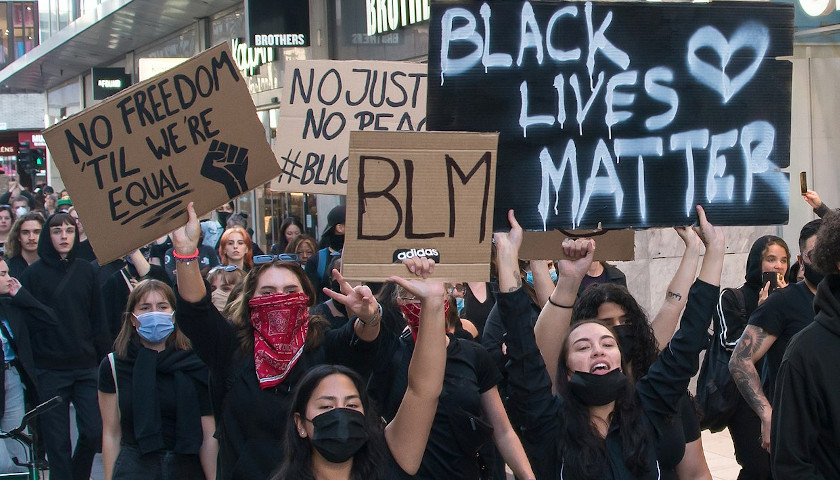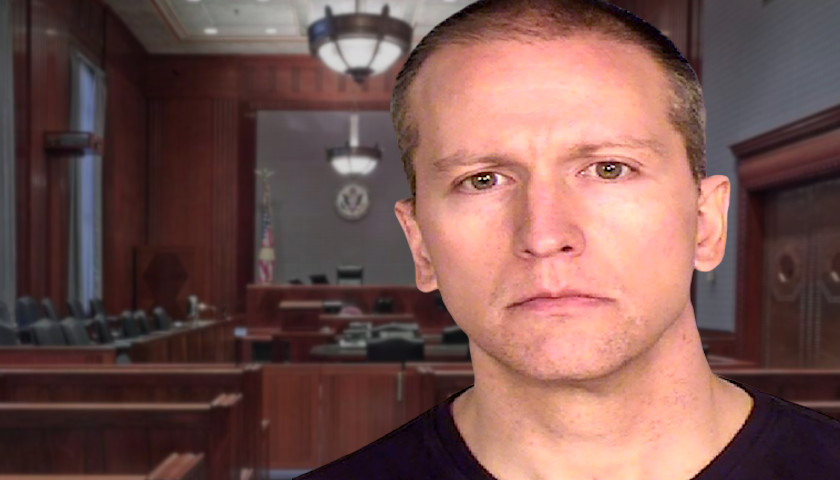by Armstrong Williams
Scenes of largely white crowds across the world demonstrating in support of Black Lives Matter in the wake of George Floyd’s murder are reminiscent of another watershed moment in America – The 1960s civil rights revolution, in which white America finally awakened to the plight of blacks in this country. What followed was an upheaval in American society that forever changed the political landscape.
While many in America see this crisis as grounds for a much-needed racial reckoning, some in the white community see anti-racism protests as a condemnation and repudiation of white identity. In fact, the liberal media has in some instances attempted to question whether whites deserve to be involved in the conversation at all. In an opinion piece published in the Washington Post last week, whites were urged to “shut-upand listen,” and the author even suggested that the overwhelming social media support on behalf of whites for civil justice was co-opting the Black Lives Matter movement in harmful ways. Others questioned whether the backlash against police brutality marginalized whites while promoting an anti-racism agenda that ignores the progress and promise America has experienced over the course of the post-civil rights era. After all, if whites are so bad, how could white voters have elected a black President – twice?
But the dynamics of alienation are particularly stark among an older generation of whites who see their power and status challenged by an increasingly diverse, increasingly gender-balanced, power structure in America. And it often comes across in very blunt terms. A recent episode was when a white retired couple was sitting on their couch watching the news and discussing the recent events surrounding Black Lives Matter. Unbeknownst to them, one of their phones was broadcasting the conversation over Facebook Live. “I’ve got the emails about how we’re supporting and we need to fix this problem, f— you,” said retired Navy Captain and Naval Academy Alumni Board member Scott Bethmann. He objected to the fact that organizations felt a necessity to publicly align themselves with Black Lives Matter – even when they themselves had done nothing wrong. “So all the white people have to say something nice to the black b—- that works in the office. But the black b—- don’t get fired. It’s bulls—. Management’s going to fire the white people…. The white m—–f—– can’t say anything, that’s the point we’re making here…”
While Bethmann’s use of racial slurs is certainly condemnable, his broader point – organizations and leaders feeling coerced into making a politically correct statement on the controversy du jour – resonates among many whites. Bethmann’s candid comments also reflect a frustration at feeling that his voice will not be heard if he does not agree with the current media narrative.
Even more alarming is the knee-jerk reaction to deface and dismantle Confederate flags and other monuments. Symbolically kicking the dead when they are already down does not solve the problems of racism and police corruption that are very much still alive. Rather, tearing down monuments may only further alienate those, like the Bethmanns – who are successful and politically connected whites in positions of power and influence – whose assistance will be greatly needed if we are to create additional leadership opportunities for blacks and other minorities in the military and law enforcement. We should not require them to assert their allegiance to BLM or demand they kneel in solidarity with striking athletes; rather we should ask that they use their positions of influence and stature to open the doors to more inclusion and opportunity. This is something they would likely be only too eager to do – if constructively engaged. The best way to defeat an enemy, to paraphrase the great Abraham Lincoln, is to convert him into an ally.
What is also obvious is that Bethmann is not alone in his sentiments. One of the most contentious controversies over the past few years has been the battle over the meaning of national anthem protests at professional sports events used as a tactic to bring attention to the issue of police brutality. While proponents of the protests, most notably Colin Kaepernick, have insisted that taking a knee during the National anthem was not about disrespecting the flag but about holding America to its unkept promise of equal treatment under the law for African Americans, others, including NFL Commissioner Goodell and President Trump have attempted to cast the issue in terms of symbolizing respect for the service and sacrifice of America’s veterans and front-line law enforcement. This culture war has raged for years, and recently come back into focus in the aftermath of the George Floyd tragedy.
When asked how the NFL should respond to renewed calls by players for on-field gestures to protest police brutality, future hall of fame quarterback Drew Brees of the New Orleans Saints waded full-tilt into the controversy by stating that he would “”never agree with anybody disrespecting the flag of the United States of America.” Brees’ statement in light of the current climate provoked immediate and in some cases violent backlash against him, even among his own teammates. But this is a stance Brees has consistently taken, and that is much in line with that of President Trump and the NFL – which had essentially banned on-field protests.
Brees himself is a well-liked and respected leader in a locker-room where most of the players are African Americans. He has contributed significantly to charitable causes in New Orleans, specifically those which benefit poor and black children. He is – for better or worse – no Donald Trump. And so, for him to get swept up in the furor around Black Lives Matter is a telling signal of the times. The larger point here is that Drew Brees dared to speak his opinion – he did not just shut up. Though he was challenged, he also responded in subsequent statements that he was willing to listen to the perspective of his black friends and supporters, and stand in solidarity with them in their quest for equal justice.
Notably, however, Brees did not repudiate his stance on respecting the flag. Nor did he have to do so to show great humility and compassion towards his fellow teammates. Brees can both have his own opinion and deeply empathize with the plight of others. He can stand for what he believes and permit others to kneel for their beliefs – without driving a stake of division through the heart of unity he has engendered over his career as a team leader. Brees’ conduct exemplifies a clear path forward towards healing our divides and making progress together.
– – –
Mr. Williams is the Manager / Sole Owner of Howard Stirk Holdings I & II Broadcast Television Stations, and was named the 2016 Multicultural Media Broadcast Owner of the year. Follow Armstrong on Twitter at @arightside.
Photo “Black Lives Matter Supporters” by Frankie Fouganthin. CC BY-SA 4.0.






The Forgotten History of Britain’s White Slaves in America
Read more: https://www.americanthinker.com/articles/2017/07/the_forgotten_history_of_britains_white_slaves_in_america.html#ixzz6PEnQAtV2
Right on. 83ragtop50.
Here is what the Deep State, RINOs and MSM do not want you to see:
https://www.fox5dc.com/news/protesters-deface-world-war-ii-memorial-and-other-national-mall-monuments
It took 7 decades for fund raisers, from kids to old folk to raise this stunning memorial to American military WWII war dead, their husbands, brothers, sisters, uncles, aunts, white and colored, nieces and nephews . Look what these thugs have done to it.
We will not stop until BLM and ANTIFA are wiped out forever. They are no better than ISIS and the Taliban. These people are truly homeland terrorists, thugs, looters, arsonists (including burning churches). They are the worst society has to offer.
I would strongly suggest that everyone actually study the principle principles of the Black Lives Matter movement before supporting it.
I am very much in support of equal opportunity and treatment for all Americans. But as I read that movements purposes I believe that is not what BLM is all about.